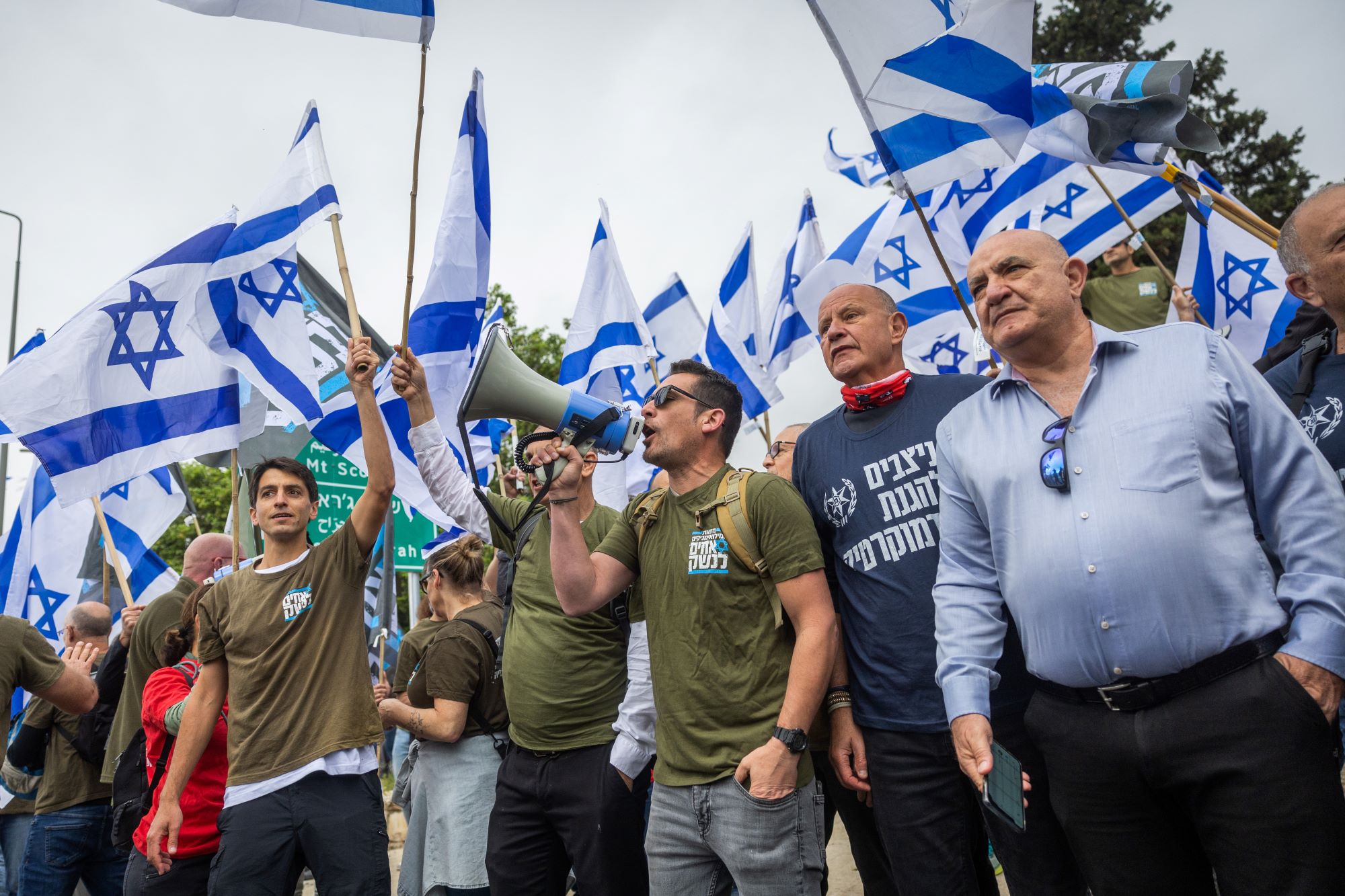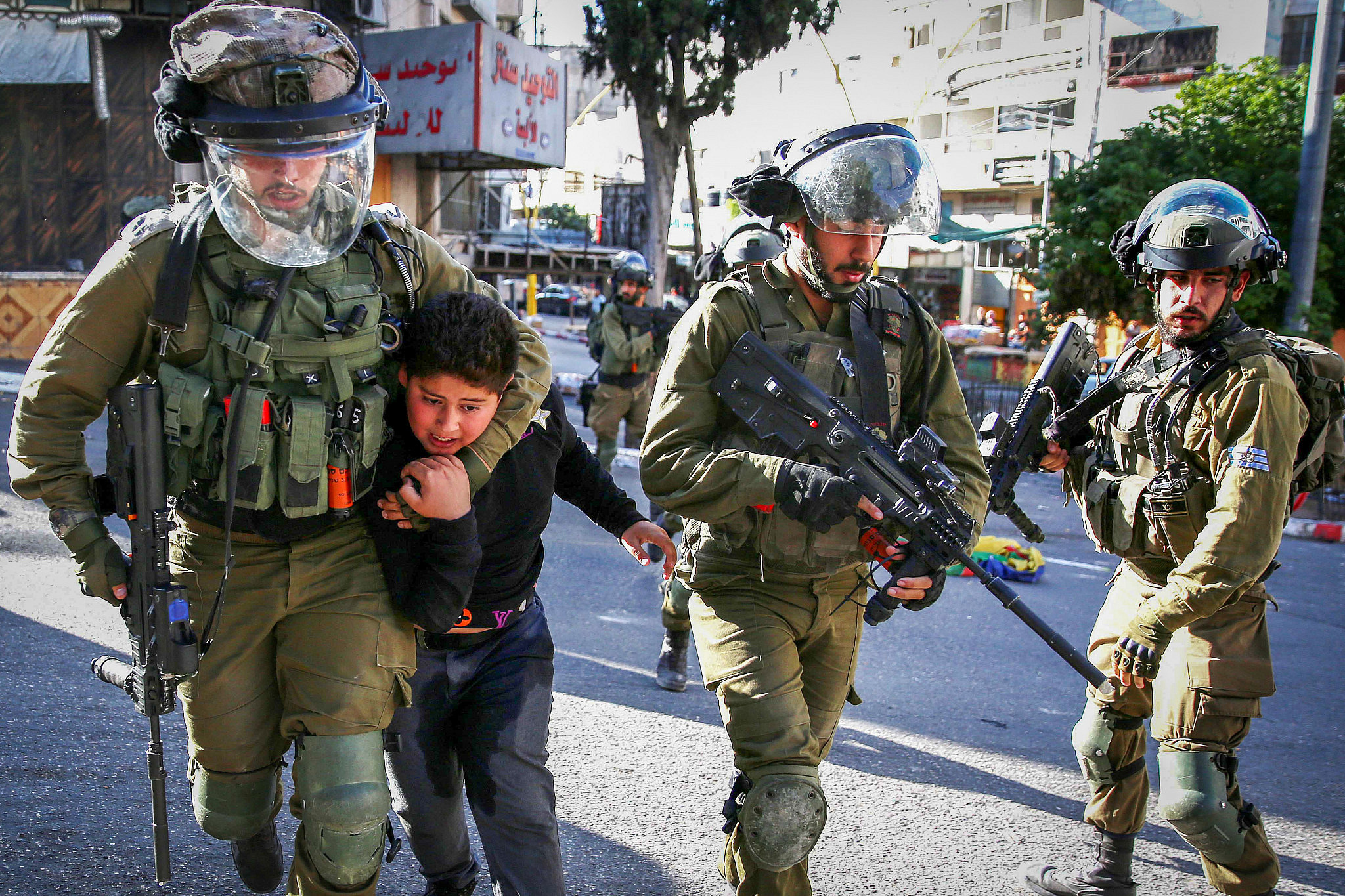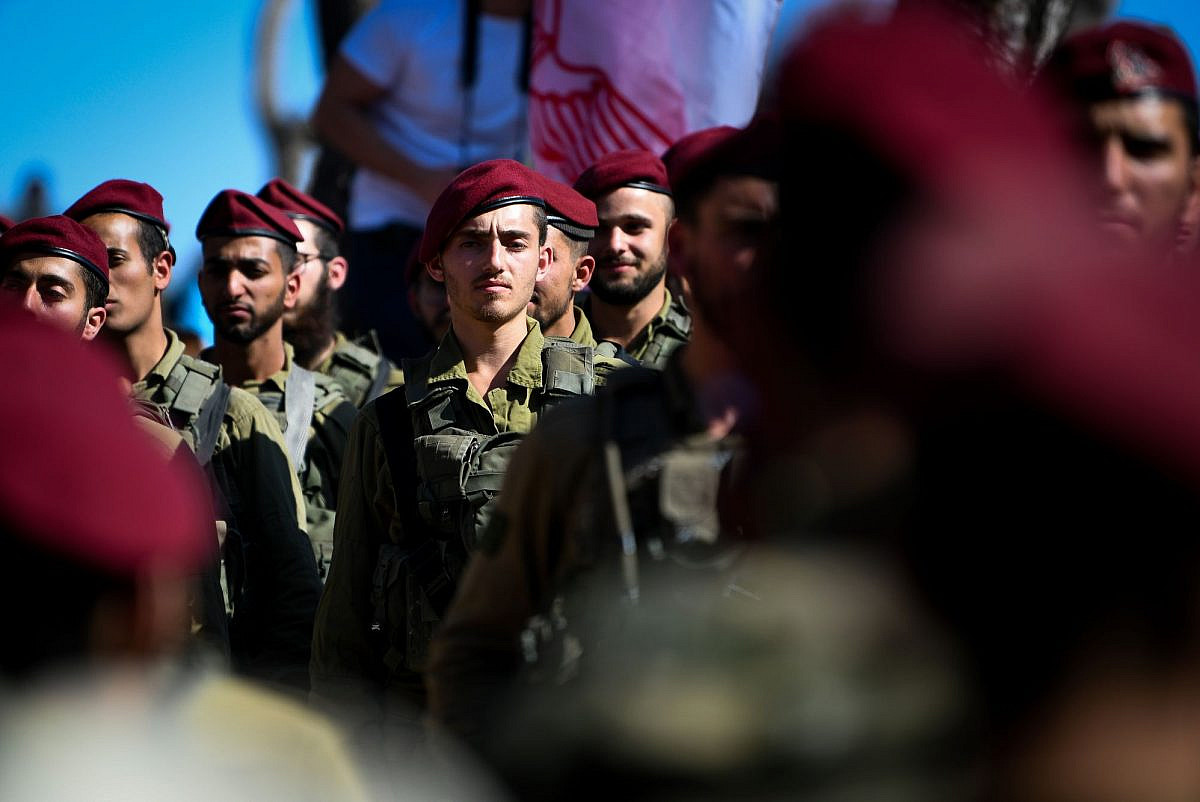For most of Israel’s existence, military service has been widely viewed as a sacred duty beyond any public debate. Refusal to serve in the army was mainly the preserve of ultra-Orthodox Jews who dedicate themselves fully to Torah study, and a handful of activists on the radical left who had enough courage and a sufficiently supportive environment to face the consequences of defying the authorities and social norms.
In recent months, however, a seismic shift has taken place within the context of the mass movement against the far-right government’s judicial overhaul: refusal has gone mainstream.
It began earlier this year with calls not to volunteer for the reserve units — upon which the Israeli army is deeply reliant — should the governing coalition continue its assault on the judiciary. Then, in March, 37 out of 40 reserve fighter pilots from Squadron 69 announced that they would stop volunteering due to the government’s plans, stating that they would not serve “a dictatorial regime”; this, in turn, led IDF Chief of Staff Herzi Halevi to warn the prime minister and defense minister against harming the army’s preparedness for war.
Similar announcements from different groups of reservist soldiers followed, reaching a climax last month when over 10,000 reservists from various units signed a letter declaring that they would stop volunteering for service ahead of the Knesset passing a law eliminating the High Court’s ability to strike down “unreasonable” government decisions. Meanwhile, a recently established protest group called Brothers and Sisters in Arms, made up of tens of thousands of reservists, has become increasingly prominent in the resistance in the streets.
This unprecedented level of refusal, driven by political-moral convictions, has left many astonished. To those of us who have been working for years to wake Israeli society up to the army’s abuses of Palestinians under occupation, it seems almost like a mirage, as if we have reached the days of the Messiah. The people known in Israel as “the best of our sons” — pilots, intelligence officers, and special forces combatants — who previously steered away from any political discussion and denied recognizing any notion of the army’s wrongdoings, are now standing united in the streets and in public petitions encouraging refusal to serve the military machine.

This unexpected transformation raises essential questions about the sacred status of the military in the eyes of the Israeli public, and suggests the possibility that societal attitudes toward the army are indeed evolving. Now, it is the job of Israeli activists whose criticisms of the regime predate the swearing in of the current government to leverage this shift into a force that will outlive the protest movement.
A counterintuitive opportunity
The phenomenon of organized political refusal first began during Israel’s invasion of Lebanon in 1982. Yesh Gvul (“there is a line” or “border”), a movement formed at the start of the war, delivered a petition to the government signed by 3,000 reservists who refused to join up with the invading Israeli forces.
This was followed 20 years later by the Combatants’ Letter, in which 51 combat reservists declared their refusal to serve in the occupied territories during the height of the Second Intifada. Each year, a handful of teenage conscientious objectors serve time in military prison for defying their conscription orders, but their numbers have remained marginal — matched on the right by soldiers who refuse orders to evacuate settlements or outposts, for example.
What we are seeing today is a new phenomenon altogether, with reservists refusing en masse to participate in any military activity in response to what they see as a fatal attack on Israel’s democracy by the government. Of course, it is easy to point out the hypocrisy of those who are only beginning to wake up now, after decades of a brutal military dictatorship that has caused millions of Palestinians to suffer every day.
Indeed, a significant number of those refusing are motivated by fears that the judicial overhaul could expose them to investigations by the International Criminal Court. But to borrow from the Mishnah: “Let man ever pursue the study of the Torah, whether for its own divine purpose, or not for its own divine purpose, because studying it for non-divine purpose he will attain its own divine purpose.”
Unlike Yesh Gvul and subsequent refusal campaigns, the current movement is not actually anti-militarist in character. Those participating in it are insisting on calling their action “non-attendance” rather than refusal, suggesting a willingness to return to duty should the government halt the judicial overhaul. The most interesting question, then, is what the consequences of this crack in the sanctity of the army will be.

In the short term, one wonders what would remain of this wave of refusal if the army were to embark on another large-scale operation in Gaza — or Jenin or Nablus, for that matter. I suspect that much of this movement would fall apart, and many would (perhaps unwillingly) put their uniforms on once again. Military operations have often served Benjamin Netanyahu’s governments in unstable times, and as usual, the Palestinians are the ones who pay the price.
In the longer term, however, the picture is less clear. The army has emerged as a potent tool for civic change in Israel, given the large number of reservists and former personnel upon whom the state relies for its extensive military activities. Protests from within the ranks of former soldiers thus hold enormous potential, substantially surpassing their impact compared to other Western countries.
It is worth reflecting on the significance of this phenomenon; after all, the army is an organization founded on hierarchy and institutionalized violence, and there is a clear danger to civil society when the army becomes an entity with sweeping political influence. On the other hand, in a country where conscription is mandatory (except for Palestinian citizens and, for the time being, most ultra-Orthodox Jews), it is virtually impossible to separate the army from any major political debate. Thus, as counterintuitive as it may seem, the left would benefit from recognizing the vast potential of rebellious veterans as a political force for change.
Most read on +972
It is impossible to know where the current wave of refusal will lead or how long it will last. But there is no doubting the significance of this moment, and the potential for it to be a turning point in societal norms and attitudes toward the army in Israel. It is a rare opening that paves the way for Israelis to question the legitimacy of military actions and perhaps later to reassess their stance on the army’s primary function: maintaining the occupation.
Whether or not one identifies with the mass protest movement currently taking over Israel’s streets, it is vital that we take advantage of this moment in which Jewish Israelis are rethinking the red lines that they will not cross. For the first time in my lifetime, defying military orders is seen as a legitimate act of protest in Israeli society, generating wider conversation and reflection on who issues the orders and whom they serve. Even if the motives behind the refusal are largely self-interested, the seeds of doubt have been sown, creating the potential for transformative effects in the future.




